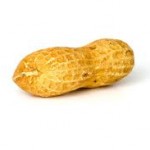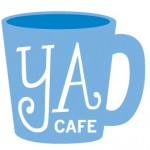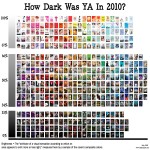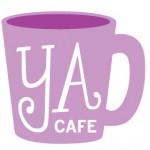 Perhaps one of the best ways to learn to write is by reading. Thing is, to really get the most out of your reading, you have to be strategic about it. Sure you can read for fun, but to learn the most from your reading you need to approach it thinking “how did the author do that?”
Perhaps one of the best ways to learn to write is by reading. Thing is, to really get the most out of your reading, you have to be strategic about it. Sure you can read for fun, but to learn the most from your reading you need to approach it thinking “how did the author do that?”
For this reason, if you want to learn from the masters, I suggest the short form: short stories, essays and poems. Unlike novels or other long works, the short form allows you to read and take in the entire piece in one sitting, which in turn lets you analyze how the piece is working both on the macro and micro levels. When we read longer works, it’s hard step back and see how the work functions as a whole. With short stories, essays and poems, we can zoom in and out, inspecting the piece at hand both in its entirety and at the paragraph or sentence level.
In order to read with purpose, we first have to re-teach ourselves to read. We cannot be lazy. We must read as writers. In this regard, Reading Like a Writer by Francine Prose is a valuable addition to any writer’s library. To read a excerpt, click here. This book guides us and teaches us to read literature with an eye toward understanding how the writing really works. It would be impossible for me to recap here everything that Prose talks about in that book and do it justice. Instead, I thought I’d let you hear it from Francine Prose herself. (An interview with Francine Prose is the second listing on the widget below.)
It might also be worthwhile to invest in a small collection of short form works in your genre. Below I list a few resources and books that I have found useful. I have researched many anthologies (especially for short stories) and have yet to find the perfect one. The resources listed below aren’t perfect, but they’re solid and a good place to start.
Poetry
- Poetry 180
- Good Poems, edited by Garrison Keillor
(This lovely collection covers a broad spectrum of poems and styles.) - Poets.org
Fiction
- The Art of the Short Story, edited by Gioia & Gwynn
(The best short story anthology I have found to date. It contains most of the greats and is the textbook I’ll be using in the class I’m teaching this fall.) - Best American Short Stories, edited by various authors
(An annual anthology of the best new short stories published that year.) - Project Gutenberg
(An online database of free books! You can even put them on your kindle or e-reader. You won’t find contemporary stuff here, but you will find the classics.)
Essays
- The Art of the Personal Essay, edited by Philip Lopate
(A solid anthology of personal essays, from the forerunners to the twentieth century.) - The Best American Essays of the Century, edited by Joyce Carol Oates
(Great compilation of American narrative non-fiction.) - The Best American Essays, edited by various authors
(This yearly publication is a great sampling of the best new essays of each year.)
Today’s Task: Choose one short story or poem and read it closely, like a writer. Focus on what the author is doing in the story and how the author manages to pull it off. Then, if you like, share your experience in the comments.






 Call me Gabi (pronounced gah-BEE). I'm a writer, freelance teacher, and a lover of books and words. I'm also the instigator of DIY MFA. iggi's my sidekick, but he thinks he's the brains behind this operation.
Call me Gabi (pronounced gah-BEE). I'm a writer, freelance teacher, and a lover of books and words. I'm also the instigator of DIY MFA. iggi's my sidekick, but he thinks he's the brains behind this operation.
 Goodbye is for Sissies
Goodbye is for Sissies YA Cafe: What YA Book are You Thankful For?
YA Cafe: What YA Book are You Thankful For? YA Cafe: Why I Love Dark YA
YA Cafe: Why I Love Dark YA YA Cafe: YA Appreciation Month
YA Cafe: YA Appreciation Month
Comments on this post
Great advice . . . except I hate short stories and essays. I prefer to disappear in a novel. 🙂
13. September - 1:50 pmExcellent advice and soooooooo true!
13. September - 2:31 pmStina, I know what you mean. I find some short form stuff to be rather pretentious, but I firmly believe that short stories are like teas, if you don't like it, that's because you haven't found the right one for you.
I'm currently hatching a plan to make short stories more accessible. I'll keep you all posted and let you in on it soon.
And remember, you can learn from the masters by reading novels and memoirs as well. The only reason I suggest short form is because it allows you to look at the whole piece in one breath, rather than having it unfold little by little.
13. September - 4:50 pmI've been learning to use short stories to explore different aspects of my writing because it's shorter and quicker but I hadn't thought to do the same with reading.
Fortuitiously I have a new anthology that arrived last week and I've now indulged in the first story. The structure of a short story is different but because you can take it 'in one breath' the good ones resonate strongly.
From one read through I get a sense of the structure and pace. There are little pieces of prose that are repeated throughout but hold a different meaning each time. That's one of my favourite tricks.
I've also got Francine Prose's book on my Amazon Wishlist so as soon as my Kindle arrives!
13. September - 8:19 pmI love short stories, but really need to work on reading them to learn from them more often.
13. September - 9:40 pmI got hold of a great sci-fi collection which really helped me learn what made a short story work – before then, I just couldn't quite get them right, now I love writing them!
Essays are my soft spot. Not long ago I reread The Familiar Essay. Your suggestion has made me consider picking this book back up and working through the exercises at the end of each piece.
14. September - 12:17 amWell, I love to write shorts, so this post excites me. And I am completely adding "The Art of the Short Story, edited by Gioia & Gwynn" to my reading list. Awesome!
14. September - 1:33 pmProse book was the first I picked up when I committed to writing two years ago. So worth picking up. I agree: reading like a writer is important when it comes to learning and analyzing another writer's skill. So cool.
18. September - 1:39 am